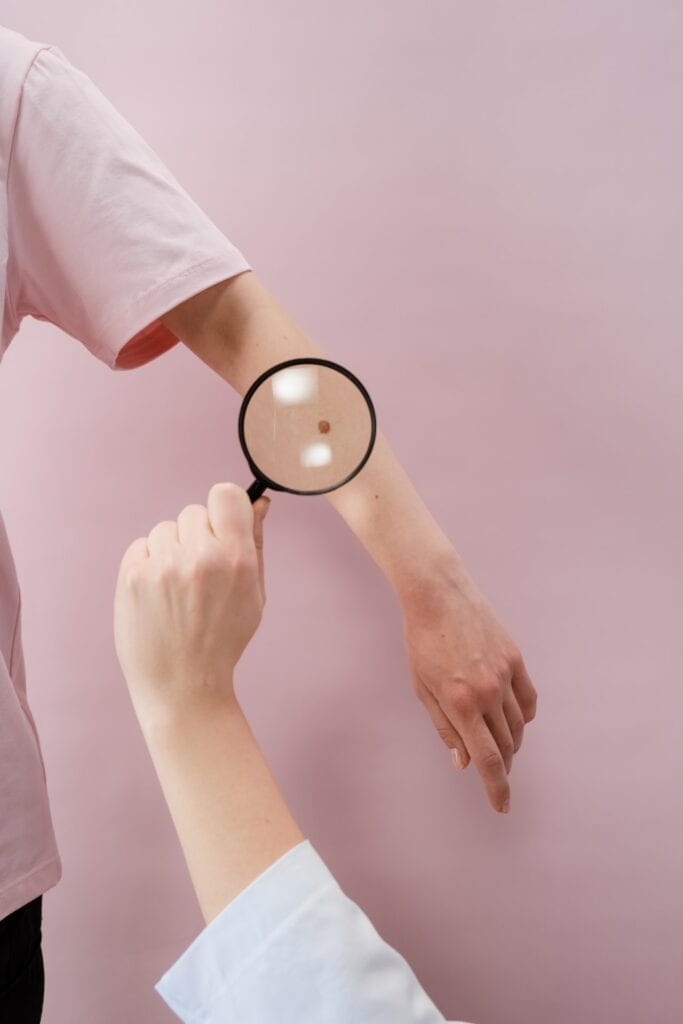Skin cancer is the most common type of cancer in the United States. According to the American Academy of Dermatology it is estimated that nearly 9,500 people a day are diagnosed with skin cancer. The risk of skin cancer rises as we age, likely because the older we are the more sun exposure we have endured in our lifetime.
However, that does not make younger people immune to this disease, and the most likely cause being inadequate skin protection from harmful UV rays from the sun, tanning beds and sunlamps.
There are three types of skin cancer. Two of the types, Basal Cell Carcinoma and Squamous Cell Carcinoma grow and spread rapidly to the other parts of the body. While skin cancer can happen on any part of the body, these types are generally found on part of the skin exposed to the sun, such as the face, head, neck, arms and hands. The third and most dangerous form of skin cancer is Melanoma. This type of skin cancer is more rare than the other two, but it can spread to the organs and be more deadly.
Our skin is our body’s largest organ and it is important that we are checking it once a month for any changes that could mean cancer. Skin cancer is rarely painful and it often goes undiagnosed. Skin cancer may be curable if found and treated before it spreads to other parts of the body. A good guide to follow while checking for these types of skins changes are the ABCDE’s of skin cancer.
A: Asymmetry– One half of the mole does not match the other
B: Border– Are the borders of the mole irregular?
C: Color– color changes or more than one color
D: Diameter– Diameter greater than the size of a pencil eraser
E: Evolving– this means that the growth has changed in size, shape, symptoms (such as itching and/or tenderness), surface changes, or changes in shades of color.
It is imperative that you make an appointment to see your dermatologist right away if you notice any of these changes to get them checked.
There are some simple ways to help keep our skin healthy as we age such as:
- Make sure that you are being seen by your dermatologist at least annually. This should be done even if you are completely healthy and have no history of skin cancer.
- Limit your time in the sun. Try to avoid being exposed to the sun during peak hours of the day when the sun’s rays are the strongest, usually between 10 AM and 4 PM. Cloudy skies do not save your exposure from these harmful rays either.
- Use sunscreen. Look for sunscreens with an SPF (sun protection factor) number of 30 or above, and preferably ones that are labeled “broad spectrum”. You should apply sunscreen at least 30 minutes before you go outside, and then reapply every two hours, or more often if you are swimming, sweating or rubbing your skin with a towel.
- Wear protective clothing. Loose, lightweight, long sleeved shirts, and long pants and skirts will certainly keep you protected. Many stores also sell clothing that has UV protection. Sunglasses help protect your eyes. Look for some that block 99 to 100 percent of the sun’s rays.
- Avoid tanning beds and sunlamps.
Medicare Part B will generally cover doctors’ services when they are medically necessary to evaluate, diagnose or treat a medical condition. Certain Medicare Advantage plans may also cover dermatology visits, but there may be certain rules or limitations to that coverage.







